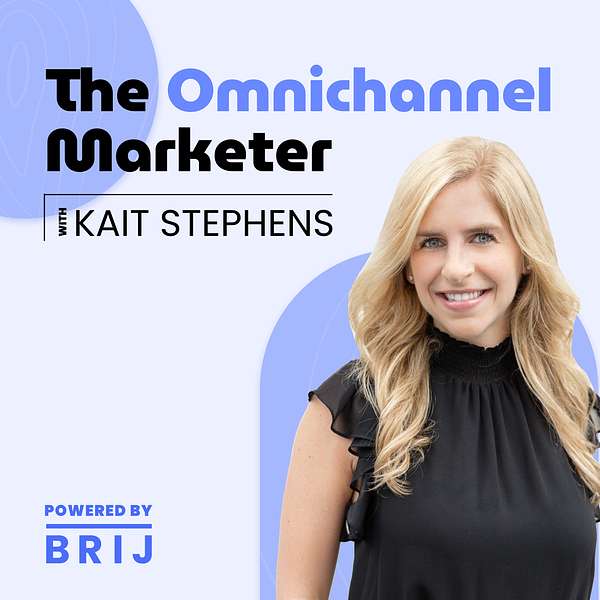
The Omnichannel Marketer
The Omnichannel Marketer Show - hosted by Kait Stephens - is frank discussion about what it takes to build a consumer brand, create a seamless omnichannel experience, and drive revenue and customer lifetime value across DTC, Amazon, and Retail Channels. If you’re looking for the latest strategies, tips, and trends from seasoned omnichannel marketers, want no-B.S. answers to your biggest ecommerce questions, need a perspective on how your peers are addressing the same issues, or just simply want to stay informed and proactive, welcome to the show. Expect to hear from influential brand marketers, as well as operators and founders flying under the radar, who are doing amazing things in every vertical under the sun. Like food & beverage, cosmetics, health & wellness, appliances, and apparel, from high-volume purchases to high-end luxury items. Learn from their mistakes and big wins, and take your brand revenue and experience to the next level. Each episode will deep-dive on the latest omnichannel marketing strategies, including acquisition, brand building, retail, customer experience, retention, and loyalty. Send guest pitches to kait@brij.it.
The Omnichannel Marketer
Category Disruption and Evolving from DTC to Retail with Gabi Lewis, Co-Founder of Magic Spoon
•
Kait Stephens
In this episode, we meet Gabi Lewis, founder and CEO of Magic Spoon
Magic Spoon is a better-for-you cereal brand that is designed to taste like your favorite childhood cereals but low in sugar and high in protein.
In this episode, we discussed category disruption, influencer marketing, and evolving from DTC to omnichannel.
Topics covered
- Category Disruption
- Consumer health trends
- Influencer and affiliate marketing
- Omnichannel distribution
- Retail velocity
- Consistency
- Measurement & incremental
Takeaways
- The cereal category became stagnant because it was dominated by three large companies that weren’t incentivized to innovate, and a large scale was needed to compete.
- Magic’s Spoon's first round of investors we also affiliates who helped launch the brand, which allowed for a great launch without overreliance on Facebook ads.
- Magic Spoon moved to Amazon and retail because that’s where customers want to buy. Most customers don’t want to buy from a different website for every product they want.
- Magic’s Spoon's first retailer was Target because of the overlap with their customer base and their history of helping to launch DTC brands.
- Few brands have cracked the code on how to use digital to drive retail velocity, but what Gabi has learned is that nothing drives retail velocity like the right product at the right price with the right placement and shelving
- The benefit of being DTC first is that you can use a lot of learnings from your website and Meta ads to inform retail strategy.
- The benefit of cereal packaging is that its packaging has a lot of space and it acts as a billboard for your product
- Understanding incrementality is a crucial lever to get into retail; Magic Spoon is 65% incremental to the cereal category, meaning that 65% of Magic Spoon customers aren’t buying other cereals
- Influencer marketing changes when going to retail. The CTA evolves to “Buy in Sprouts,” or Target, etc.
Please let us know your thoughts about the episode!
Where to find Gabi Lewis:
Linkedin: https://www.linkedin.com/in/gabi-lewis-88483447/
Website: www.magicspoon.com
Where to find Kait Stephens:
Linkedin: https://www.linkedin.com/in/kait-margraf-stephens/
Website: www.brij.it
SUBSCRIBE TO THE OMNICHANNEL MARKETER
www.theomnichannelmarketer.com
9:30 - 14:00